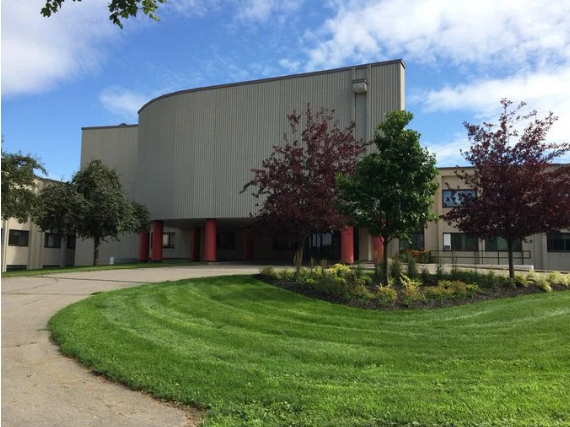Canada/Local and sustainable food support for Cartierville
Unveiled in small pieces, the Bordeaux-Cartierville Food System is beginning to take shape. It must meet the needs of the most vulnerable while also integrating the major principles of sustainable development.

The project benefits from a plot of land as large as four tennis courts (800 m2) converted into a farm for market garden production. It was developed in 2019 as part of a project called Fourche et Fourchette.
It is led by the Bordeaux-Cartierville food security table, in collaboration with Ville en vert. It is located on the site of the future Cartierville Community and Cultural Centre. This building belonged to the religious congregation of the Sisters of Providence, but the City of Montreal bought it in 2016.
In it, there is a huge industrial kitchen of nearly 200 m2, where 400 meals were served daily. It is adjacent to a dining room with a capacity of 150 people. Its management should be entrusted to the Centre d'action Bénévole-Cartierville.
These two elements constitute the key elements of the planned food system.
Financial resources are beginning to be gathered. A grant of $1 million from the Ministry of the Environment has been awarded as part of the Climat municipalités - Phase 2 program.
"This amount is not yet broken down," admits the mayor of Ahuntsic-Cartierville, Emilie Thuillier. It would be used to renovate a part of the kitchen whose equipment is outdated. It would eventually support the organization of spaces to grow vegetables or plant fruit trees.
The borough will add $470,700. Thanks to the contribution of other partners, the necessary $1,822,602 could then be covered.
Food security
To be effective, the food system will have to integrate several community organizations, whether for production, processing or distribution. The project also aims to implement good recycling and composting practices.
"Pieces [of the system] already exist for the most part. But there may be things that need to be invented and, above all, organized so that it is local, for the benefit of the residents," says Ms. Thuillier.
In fact, the agricultural land has allowed the distribution of nearly 980 kilos of fruits and vegetables in 2020, in the form of baskets worth $20. At least 45 households, including vulnerable people, seniors and large families, benefited.
"The project will improve the living conditions of the population through education, promotion and access to healthy, local and sustainable food in a perspective of food autonomy and circular economy", underlines a decisional document of the borough.
However, for the moment, no one can say how many people will be able to benefit from it once in operation.
"We don't have those kinds of numbers or targets yet, at least not to my knowledge," confides the mayor.
However, she says that the help this system will provide is not limited to fresh baskets and could take many different forms.
"It could be for those who don't have access to produce. It could also be for people who have access but are not able to benefit. It doesn't have to be donations or selling," she observes.
She agrees that the vegetable garden, like the kitchen, will promote skills development, whether through farming workshops or collective kitchens.
The project is expected to be up and running by 2022, when the community centre, which is currently in the midst of redevelopment, opens.
Source: journalmetro.com/


